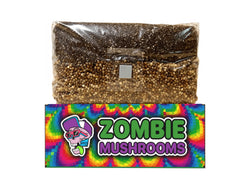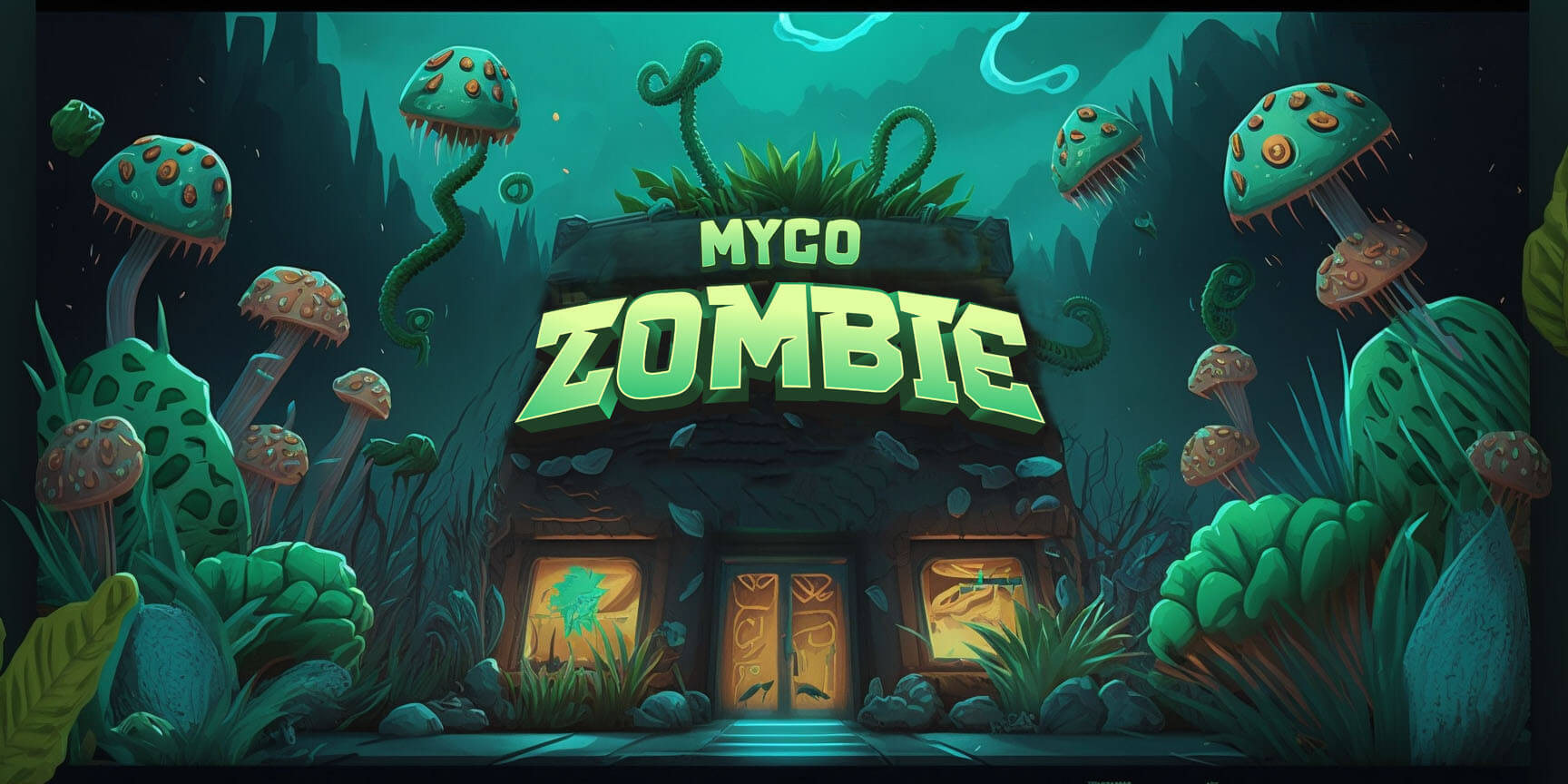⬇️ Prefer to listen instead? ⬇️
- Lion’s Mane mushrooms may improve gut-brain axis signaling and mood regulation.
- Reishi mushrooms reduce gut inflammation by controlling immune responses.
- Turkey Tail mushrooms increase microbiota variety during cancer treatment.
- Beta-glucans in mushrooms act as strong prebiotics, feeding good gut bacteria.
- Functional mushrooms support gut microbiome balance better than many standard probiotics.
Your gut affects more than just digestion—it's linked to mood, immunity, inflammation, and even energy levels. As the talk around gut health and digestion grows, functional mushrooms have become known as a helpful support. Mushrooms are packed with prebiotics, antioxidants, and compounds that control the immune system. They feed the gut ecosystem in ways that few other foods can. This article looks at how mushrooms help your gut, which kinds are most helpful, and simple ways to add them to your health routine.
Why Gut Health Matters
The gut is very important for keeping your whole body healthy. It has over 100 trillion microorganisms. Your gut microbiome affects not only digestion but also immune function, how your mood is controlled, and preventing long-term sickness. The relationship between these tiny living things in your gut and your body is vital. They help break down food, make important nutrients like B vitamins and vitamin K, and talk to your immune system to fight off bad things.
An imbalanced gut—often caused by poor diet, long-term stress, or antibiotics—can lead to inflammation, upset digestion, weaker immunity, and make you more likely to have mood problems. That’s why supporting your microbiome with whole, nutrient-rich foods like mushrooms is about more than just what you eat—it helps your whole body.
Understanding the Gut Microbiome
Your gut microbiome has many different kinds of bacteria, fungi, and viruses. They live together in your digestive system. Certain bacteria like Lactobacillus, Bifidobacterium, and Akkermansia muciniphila are seen as helpful. This is because they ferment fiber into short-chain fatty acids (SCFAs) like butyrate. These compounds feed the gut lining, control immune function, and lower inflammation.
Key jobs of a healthy gut microbiome include:
- Fermenting fiber into SCFAs that help the gut lining
- Controlling immune cells to tell the difference between harmful and friendly microbes
- Making essential nutrients like folate and biotin
- Neutralizing toxins and sticking to bad things to remove them before they get into your blood
When the balance of microbes is upset (called dysbiosis), you are more likely to get digestive problems, infections, and even metabolic sicknesses. Feeding these microbes with different kinds of plant-based prebiotics—like those in mushrooms—is key to bringing back balance.
The Gut–Brain–Immune Axis
The gut connects straight to the brain through the vagus nerve. This connection is like a main road for signals. It's called the gut-brain axis. Signals like neurotransmitters, hormones, and inflammation markers travel back and forth on this road. They affect mood, thinking, stress, and how hungry you feel.
Your gut also has many of your immune cells. This is part of what's called the gut-immune axis. About 70–80% of your immune system is in your gut. It's always watching for foreign invaders. So, having a healthy gut is very important for keeping your immune system balanced and controlling inflammation.
Mushrooms help this group—gut, brain, and immune system—by:
- Helping the gut lining by making SCFAs
- Controlling immune activity using special fungal polysaccharides
- Increasing how your body makes neurotransmitters, especially serotonin. Most serotonin is made in the gut.
By making these connections stronger, mushrooms for gut health don't just help digestion. They also help with immunity and feeling good mentally.

How Mushrooms Contribute to Gut Health and Digestion
Unlike many common vegetables, mushrooms have active natural compounds that serve as food for the helpful microorganisms in your gut. Here's how mushrooms help your digestion and gut microbes:
1. High in Functional Fiber
Mushrooms contain both insoluble and soluble fibers that help with regular digestion. Beta-glucan is a key compound. It acts like soluble fiber and a prebiotic—it helps feed good bacteria and helps make SCFAs. SCFAs keep the gut lining strong and lower inflammation.
2. Antioxidants that Defend the Gut Barrier
Ergothioneine is a strong antioxidant found almost only in mushrooms. It helps lower oxidative stress in your digestive system. This helps create a healthier gut lining. It also limits damage from free radicals and inflammatory conditions like leaky gut syndrome.
3. Natural Anti-microbials and Immune Support
Compounds like triterpenes and lectins in mushrooms help control how the immune system works. They stop harmful bacteria without hurting the good ones. This is a careful balance, and regular antibiotics often mess it up.
4. Polysaccharides That Help Control Inflammation
Fungal polysaccharides like PSP, PSK, and beta-glucans help calm the immune system. They help balance it instead of just shutting it down. This is key for long-term gut problems like IBS or IBD.
All together, these parts show mushrooms can act like medicine for gut health and digestion. They offer help beyond what normal foods can do.

Key Nutrients in Mushrooms That Support Digestion
Several unique compounds in cooking and medicinal mushrooms help them have good effects on the gut microbiome:
Beta-glucans & Polysaccharides
Beta-glucans are perhaps the most studied part of mushrooms. They encourage good bacteria like Lactobacillus and Bifidobacterium. They also help with making anti-inflammatory SCFAs. These prebiotics are also linked to better results when dealing with gut infections. And they help control the immune response.
Ergothioneine
This amino acid with sulfur protects the mitochondria and gut lining. It's called the "longevity vitamin." It slows down oxidation, especially in the intestines. This helps cells repair and lowers inflammation throughout the body.
Anti-Microbial Phytochemicals
Triterpenes in Reishi and lectins in Shiitake mushrooms have properties that fight harmful gut microbes. They do this without upsetting the balance of gut microbes. This specific action is very important. It helps stop overgrowths like Candida albicans.
Neurotrophic Factors (in Lion's Mane)
Hericenones and erinacines help new nerve cells grow. They also make the gut-brain connection better. The enteric nervous system closely controls how the gut moves and works. So, these effects help digestion work more smoothly and keep you more alert.

Functional Mushrooms for Gut Microbiome Support
Let’s take a closer look at the mushrooms that show the most promise for building a healthier gut:
Turkey Tail (Trametes versicolor)
- Has PSP and PSK, proven to improve gut microbes and immune function.
- Shown to clearly improve the variety of gut microbes in women getting cancer treatments (Gatt et al., 2020).
- Its polyphenols and polysaccharides make the colon healthier and help make SCFAs. This helps with regular bowel movements and keeps microbes balanced.
Lion's Mane (Hericium erinaceus)
- Encourages nerve repair, gut signaling, and pathways that help control mood through its nerve-helping compounds.
- Especially helpful for “leaky gut” or gut issues caused by anxiety linked to problems with the vagus nerve.
- May help balance microbes by reducing inflammation, but more human studies are needed.
Reishi (Ganoderma lucidum)
- Known for its beta-glucans and triterpenoids that help control the immune system.
- Research shows it stops inflammatory cells from getting into gut tissues (Gao et al., 2003).
- In mouse studies, Reishi brought back balance between helpful and harmful gut bacteria. This makes it a good choice for autoimmune support.
Shiitake and Maitake Mushrooms
- Rich in lentinan and D-fraction polysaccharides, strong immune boosters and anti-microbial agents.
- They help stop harmful bacteria. And they feed probiotic strains.
- Good for many uses in cooking. This makes them easy to add to daily meals.

What Research Says About Mushrooms and Gut Health
Current research on fungi and gut health consistently backs up that they help bring back a healthy microbiome and control the immune system:
- Turkey Tail: Improved gut microbiota variety in patients undergoing chemotherapy.
- Beta-glucans: Encourage Lactobacillus and Bifidobacterium to grow. This supports digestion.
- Reishi: Showed they help control gut immune response. They also protected against inflammatory gut disorders in animal studies.
These findings suggest mushrooms may soon become important in treatment plans for digestive problems, immune treatments, and even helping with mental health through the gut–brain connection.

Mushrooms vs Regular Probiotics
Unlike probiotics (which are live bacteria), mushrooms serve as prebiotics. This is the food source these bacteria need to grow well. A closer comparison:
| Feature | Mushrooms that help the body | Regular Probiotics |
|---|---|---|
| Introduce new microbes | ❌ No | ✅ Yes |
| Feed existing bacteria | ✅ Yes | ❌ Not directly |
| Survive heat/cooking | ✅ Yes | ⚠️ Mostly No |
| Shelf stability | ✅ Long shelf life | ⚠️ Requires refrigeration in many cases |
| Additional bioactive compounds | ✅ Antioxidants, polysaccharides | ❌ Limited |
Mushrooms that help the body offer strong and easy gut microbiome support. They don't have the issue of how fragile living bacteria are, which probiotics have.

Easy Ways to Add Mushrooms to Your Diet
Adding mushrooms to your life doesn’t have to be complicated or boring. Here's how to get more gut-friendly fungi into your routine:
Culinary Uses
- Add Shiitake and Maitake to stir-fries, soups, omelets, and tacos
- Use Lion’s Mane like a seafood alternative in savory dishes
- Dry-sauté mushrooms and sprinkle on salads or grains
Functional Beverages
- Brew Turkey Tail or Reishi tea to sip throughout the day
- Add Lion's Mane powder to your morning latte
- Mix mushroom elixirs into herbal tea or nut milk
Supplements & Powders
- Look for organic mushroom powders with dual extraction (alcohol & water)
- Combine powders into protein shakes or smoothie bowls
- Mushroom capsules or tinctures offer exact amounts and are easy to use.

Go a Step Further: Fermented Mushrooms
Fermenting mushrooms can make them more active and make them last longer. This process increases how well enzymes work. It also makes gut-friendly compounds easier for your body to get.
Try:
- Fermented mushroom tonics
- Mushroom-infused kimchi or sauerkraut blends
- DIY mushroom water kefir
Fermentation adds another layer of benefit for gut microbiome support.

DIY Mushroom Growing as a Wellness Ritual
Growing mushrooms at home offers not only money and environmental benefits, but also improves your odds of taking them regularly.
Grow Kit Benefits:
- Confirm the mushrooms are pesticide-free and grown on nutrient-rich substrates
- Enjoy a sustainable gut and immune health project.
- Feel more invested in your health and connected to nature
Zombie Mushrooms offers DIY grow kits for Lion’s Mane, Reishi, and Turkey Tail, making home growing easy even for beginners.

Simple Mushroom Recipes for Gut Support
Turkey Tail Gut Tea
- Combine 1–2 strips of dried Turkey Tail mushroom with 2 cups water
- Simmer for 30–45 minutes and sip warm or chilled
- Best consumed daily for microbiome variety
Lion’s Mane Brain Broth
- Add fresh Lion's Mane mushrooms to a veggie broth with garlic, turmeric, and ginger
- Simmer for 20 minutes and enjoy as a drink that's good for your gut.
Reishi Smoothie
- Blend 1 tsp of Reishi powder with almond milk, banana, cacao powder, and almond butter
- Offers calming, anti-inflammatory benefits with your morning routine

Combine Mushrooms with Other Gut-Friendly Habits
Get the most from your gut health by adding mushrooms to other habits that help your gut:
- Eat fiber-rich foods: leafy greens, seeds, legumes
- Eat fermented foods: kimchi, kombucha, yogurt
- Stay hydrated to ensure fiber moves through your system
- Get restful sleep to support gut-brain hormone regulation
- Reduce stress through meditation, nature walks, or breathwork
This way of looking at your whole health makes your food choices match what your gut microbes need.

Who Should Be Cautious with Mushrooms?
Mushrooms that help the body are generally safe, but here are a few things to keep in mind:
- People on immunosuppressive medications should consult a healthcare provider
- Mushroom allergies may occur in rare cases
- Ensure mushrooms are lab-tested for contaminants
- Avoid wild foraging without expert knowledge
Start slowly to see how you react, especially when using extracts or strong supplements.
Mushrooms offer a unique and natural way to strengthen digestion, improve immunity, and support thinking health—all through your gut. Research backs them up, and people have used them traditionally for centuries. Their role in helping treat things for modern wellness is hard to ignore. Whether it’s a calming cup of mushroom tea or a DIY grow kit, adding medicinal mushrooms to your life can have big and lasting effects on your gut health and how well you feel overall.
References
-
Gatt, M., Cross, K., Debono, M., Grech, A., & Buttigieg, M. (2020). Preliminary observations on the effect of Trametes versicolor (Turkey Tail Mushroom) on the gut microbiota in patients undergoing breast cancer treatment. Complementary Therapies in Medicine, 49, 102342.




